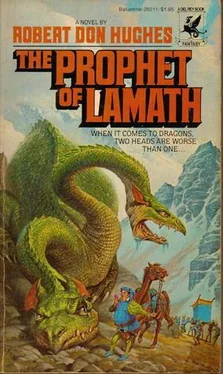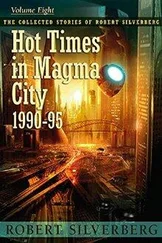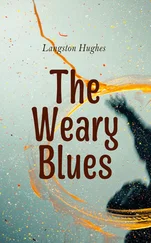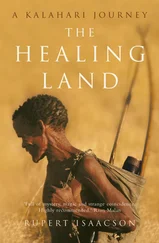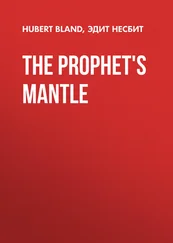He waited for the two to ride back to him, then spoke in tones quiet but full of authority. “Have you children any notion—any notion at all—of the forces at work when you bait one another in such a way? We ride to the Great North Fir, children! Even the dullest of men can sense the powers in that forest! In the Great North Fir, Rosha, such looks can kill! You ask, will you have power there? I say each man has power there! Whether you’ll shape the powers there depends on what you are. But know this, you two, and know it well. Much of shaping is in focusing power by will. If you should argue there, and focus such ill will at one another, someone is liable to get hurt!” Bronwynn blinked. “You mean, I could injure him with a look?”
“Don’t take the possibility lightly, Bronwynn,” Pelmen said. “And don’t plan to test it either!” he continued, reading her mind.
“I won’t!” she lied, and she shot a furtive sneer at Rosha.
She had planned to look away, but his fierce eyes caught hers and held them. She realized then how very much like her falcon Rosha looked. Then she jerked as, eyes gripping hers, he slammed his greatsword home into its scabbard.
The lightning seemed to open the sky ten feet above their heads—and that on a day so cloudless as to call the very existence of clouds into question. The noise was deafening; the impact knocked them from their horses. The source was Pelmen. Now as they gazed up at him, he looked like one of the mythological gods he played so frequently on the stages of Chaomonous. For the first time his youthful companions saw Pelmen as his enemies saw him. Here, truly, was a man to fear.
Bronwynn got to her knees and began to pet her bird, but it seemed unaffected by the shock. The horses, too, were calm, as if the thunderclap had been inaudible to them. Rosha and Bronwynn both looked away from the frowning sorcerer, who was silent for several minutes. Then he spoke. “I’ll warn you both once more.
Someone could be injured—and I will not allow that. Is that understood?” Both Rosha and Bronwynn nodded. Pelmen waited until they had mounted their horses again, then shook his head. “Rosha, you will never be a sorcerer. Your focus is in your hands and arms. Prick your spirit and that blade is in your hand—it is the only extension of your will you will ever rely on. I worry more about you, Bronwynn.” Pelmen looked sharply at her. “You may discover you have the ability, only to find you’ve no worthwhile reason to use it.” He nicked his reins, and Minaliss sprang forward. They rode many miles in silence.
* * *
The southwesterly wind rippled both the tall grasses and the brightly colored pennants, as Tohn’s small army mustered in the fields before his keep. “Boys,” Tohn muttered to himself, “all boys.” Yet they did indeed look grand, their helmets and bucklers flashing in the morning sun, their greatswords drawn in salute. Their uniforms were bright blue and lime, pleasing to the public eye but worrisome to an old, experienced warrior. There was no dirt on these uniforms, and no blood. The lads inside the finery had fought only one another. Were he riding into battle, he would trade them all for a small troop of veteran cutthroats. But Tohn did not expect a battle. Dorlyth mod Karis was among the finest warriors in the three kingdoms, and he had proved it repeatedly in one border skirmish after another. But he was certainly no fool.
If he could but surprise Dorlyth, Tohn thought to himself as he answered the salute with his own sword, perhaps he could put a swift end to all of this and get back to the business of living. It was a pitiful time for a skirmish anyway, what with fields to be plowed and seed to be sown. He’d feel far better to see these lads in work clothes, instead of prancing around in these fancy pants and tunics. Still, if he could strike now and have it done, it would be worth the delay in planting. If the problem was allowed to fester, there would be no harvest this year to need work.
If he could capture Pelmen! Now that would be a tribute to this fresh-faced troop. And it seemed feasible, provided the man was not preparing for his arrival. Tohn rehearsed the scenario of capture in a dozen different ways; but in each variation, success hinged on the element of surprise. And what if he had not been imagining the uninvited listener to his magic conversations? What if Pelmen himself had been listening in? “I’m a crazy old man,” he muttered angrily to himself.
His captain, not understanding him, barked out a crisp, “Yes, sir!” Tohn looked at the fellow in surprise, then chuckled.
The captain worried that he had missed something, but was somewhat reassured when the gray-haired merchant patted him on the shoulder and murmured, “That’s right, son, keep reminding me.” Tohn turned away and went to mount his horse. He heard the captain shouting orders behind him as he slipped his foot into the stirrup and swung himself up. When he turned to look at his battalion, they were mounting in spectacular precision.
“Beautiful sight,” Tohn mumbled. “Not worth a snail, but a beautiful sight.” He spurred his white mare, and she trotted down into a small gully and up onto a little rise. The wind blew his hair into his face and Tohn thought about donning his helmet; then he decided wild hair in the wind was preferable to a hot helmet and sweat, so he left it off.
What if Pelmen had heard him? There were others who could shape the powers besides Pelmen. The trouble was that Tohn knew none of them, and he basically mistrusted powershapers anyway. They had a callous disregard for a person’s privacy, what with their mind reading and all. It didn’t matter who may have been listening in—it couldn’t be good.
Tohn sighed. Probably was just his imagination after all. Or what was that his cousin had said? A newly developed conscience? Little chance of that, Tohn thought. He summoned his squire to his side. “You have that bag I gave you?”
“This one, sir?” the boy asked, holding up a bag of blue velvet, knotted shut by a golden drawstring.
“That’s it. You didn’t look in it, did you?” the old . man growled.
The boy shook his head vigorously. “I know it’s something sharp though, sir,” he volunteered.
“How do you know?”
“It poked me in the leg!”
“Here—you’d better give it to me then.” It wouldn’t do to have the lad concentrating on the mysterious object when Tohn’s co-conspirators tried to contact him this afternoon. He took the bag, hung it by its string from his saddle horn, and smiled his dismissal at the squire. As the boy rode off, Tohn looked at the bag and told it, “You poke me in the leg and I’ll toss you off the first bridge we cross.” The tiny army was riding past Tohn toward the west. The passing riders heard the old man talking to himself, but they paid no attention. All were used to his eccentricity.
“Six hundred men,” he was saying. “Well, that’ll be plenty—if it’s a surprise.” A thousand feet above the snow-shrouded peaks of western Ngandib-Mar flew a bright blue messenger bird. A tiny sheepskin page, rolled into a tight cylinder, had been tied to the bird’s leg by Dorlyth’s falconer. This flyer was bound for the High City, and would not rest until she reached it. Throughout the night she had coasted along the air currents, finding the swiftest wind paths and spreading her wings to let them catch her and carry her onward. Dawn found her gliding along the treetops of a small forest, ignoring the calls of other birds as if they spoke a foreign tongue. She was not like other birds—she had a mission to perform. For she was a messenger bird, far removed from the life of the forest. She dwelt in the palaces of kings.
Blue flyers had been so long domesticated that few people now remembered their wild origins. Those whose business it was to know such things believed the species had been born in the Great North Fir, in the days before the coming of the dragon. But that was perhaps only speculation, formed on the basis of the flyer’s peculiar power. It was indeed a magic bird, for it could take an impress from any human mind. If a man could form a visual image of a place and fix in his own mind the direction and distance to that destination, the bird by some marvelous ability could absorb that knowledge and fly there. How long it took depended to some degree on the bird’s health and on the weather, but the primary factor in prompt communication was the clarity of the bird handler’s mental directions. Once tossed into the air, a blue flyer would deliver its message or die in the attempt; many a bird had perished as a result of fuzzy directions.
Читать дальше
